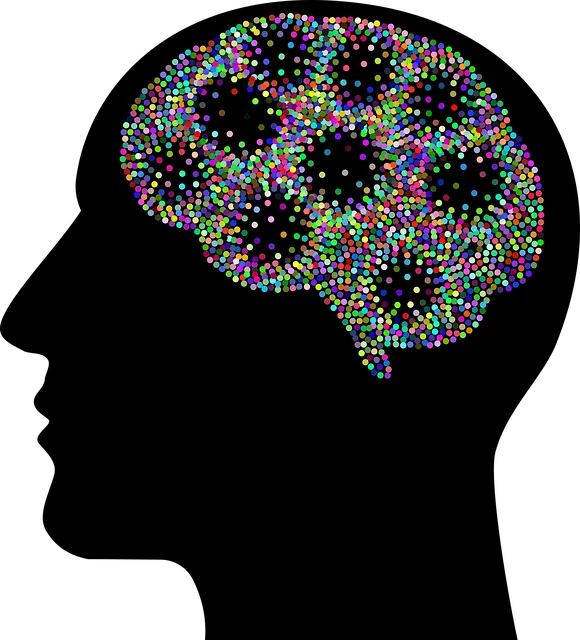In today's fast-paced world, mental wellness apps are gaining popularity as accessible solutions for emotional well-being, especially in light of increasing demand at Kaiser Permanente mental health centers in Colorado Springs, as reflected in their positive reviews. These apps offer personalized therapy, meditation tools, and mood tracking, promoting self-care practices, reducing stigma, and fostering a proactive approach to mental wellness. By emphasizing empathy building through community connections and professional support, and resilience through coping mechanisms and stress management techniques, these apps empower users with data-driven progress monitoring. Effective app development requires strategic planning, user engagement through intuitive interfaces, and regular updates based on feedback and industry advancements. The Kaiser Permanente Mental Health Center in Colorado Springs serves as a model for transforming mental healthcare using digital tools, leading to improved patient outcomes through personalized therapy, meditation guides, stress management resources, regular check-ins, mood tracking, and community support.
In today’s digital age, mental wellness app development is transforming access to support. With increasing demand for accessible and personalized solutions, applications designed to promote mental health are gaining traction. This article explores the growing importance of these apps, highlighting key features, and outlining a successful development process. We delve into the Kaiser Permanente Mental Health Center reviews in Colorado Springs as a case study, examining real-world impact and offering insights for app creators.
- Understanding the Need for Mental Wellness Apps
- Key Features and Components of Effective Mental Health Apps
- Development Process and Considerations for Success
- Kaiser Permanente Mental Health Center Reviews: Colorado Springs as a Case Study
Understanding the Need for Mental Wellness Apps

In today’s fast-paced world, mental wellness is a growing concern, with many individuals seeking accessible and convenient solutions to support their emotional well-being. This need is highlighted by the increasing demand for services at Kaiser Permanente mental health centers, such as those in Colorado Springs, where reviews often reflect the struggle to find effective, personalized care. Mental wellness apps offer a promising avenue to bridge this gap, providing tools that enable users to take control of their emotional regulation and mental health management.
The importance of these apps is further underscored by considerations from a mental health policy perspective. They can contribute to broader mental health policy analysis and advocacy efforts by promoting self-care practices and reducing the stigma associated with seeking support. Additionally, by focusing on aspects like confidence boosting and emotional resilience, these applications have the potential to empower users, fostering a more proactive approach to mental wellness.
Key Features and Components of Effective Mental Health Apps

Effective mental health apps are designed with a multifaceted approach to support users’ mental wellness. Key features often include personalized therapy plans, accessible meditation and mindfulness exercises, and tools for tracking mood and symptoms. Many successful apps incorporate Empathy Building Strategies, allowing users to connect with communities or trained professionals for real-time support and guidance. According to Kaiser Permanente mental health center reviews in Colorado Springs, these comprehensive platforms have been praised for improving access to care, especially for individuals who face barriers to traditional therapy.
Beyond immediate support, apps should focus on fostering Resilience Building by teaching users coping mechanisms and stress management techniques. By combining educational content with interactive features, these digital tools empower users to actively engage in their mental health journey. The ability to monitor progress over time is also crucial, providing users with data-driven insights that reinforce positive changes.
Development Process and Considerations for Success

The development process for a mental wellness app requires careful planning and consideration to ensure its effectiveness and success in supporting user well-being. It begins with defining specific goals and target audiences, whether it’s catering to individuals dealing with stress and anxiety or those recovering from trauma, like many seek at Kaiser Permanente mental health center reviews Colorado Springs. This phase involves extensive research into existing mental health apps, identifying gaps in the market, and understanding the latest evidence-based practices in mental health care.
The design process should focus on creating an intuitive user interface that encourages consistent engagement. Incorporating features like personalized meditation guides, mood tracking tools, and access to Trauma Support Services can enhance the app’s appeal. Moreover, integrating Mental Health Education Programs within the app can empower users with Emotional Intelligence, enabling them to better manage their mental health. Regular updates based on user feedback and advancements in the field are essential to keep the app relevant and successful.
Kaiser Permanente Mental Health Center Reviews: Colorado Springs as a Case Study

The Kaiser Permanente Mental Health Center in Colorado Springs serves as a compelling case study for understanding the impact and effectiveness of mental wellness app development within an established healthcare system. With a focus on Kaiser Permanente mental health center reviews highlighting its innovative approach, the center integrates digital tools to enhance patient care and mental health awareness. Through user-friendly apps, patients gain access to personalized therapy sessions, meditation guides, and resources for managing stress and anxiety. This digital transformation not only improves patient engagement but also allows healthcare professionals to monitor progress and intervene more effectively.
The success of this center lies in its application of communication strategies tailored to the digital age. By offering apps that facilitate regular check-ins, mood tracking, and access to a supportive community, patients feel empowered to actively participate in their mental health journey. Furthermore, the integration of conflict resolution techniques within these platforms equips users with tools to navigate challenging situations, fostering healthier relationships and improved overall well-being. This holistic approach showcases how technology can complement traditional mental health services, ultimately leading to better outcomes for patients.
The development of mental wellness apps has become increasingly important in addressing the growing demand for accessible and personalized mental healthcare. As evidenced by the Kaiser Permanente mental health center reviews in Colorado Springs, these digital tools can significantly enhance treatment outcomes and user experiences. By incorporating evidence-based practices and key features like mindfulness exercises, mood tracking, and community support, developers can create effective apps that cater to diverse user needs. The success of such initiatives lies in understanding the target audience, ensuring data privacy, and fostering collaboration with healthcare professionals. With continuous innovation and refinement, mental wellness apps have the potential to revolutionize access to care, making it more convenient and inclusive for everyone seeking support for their mental health.






